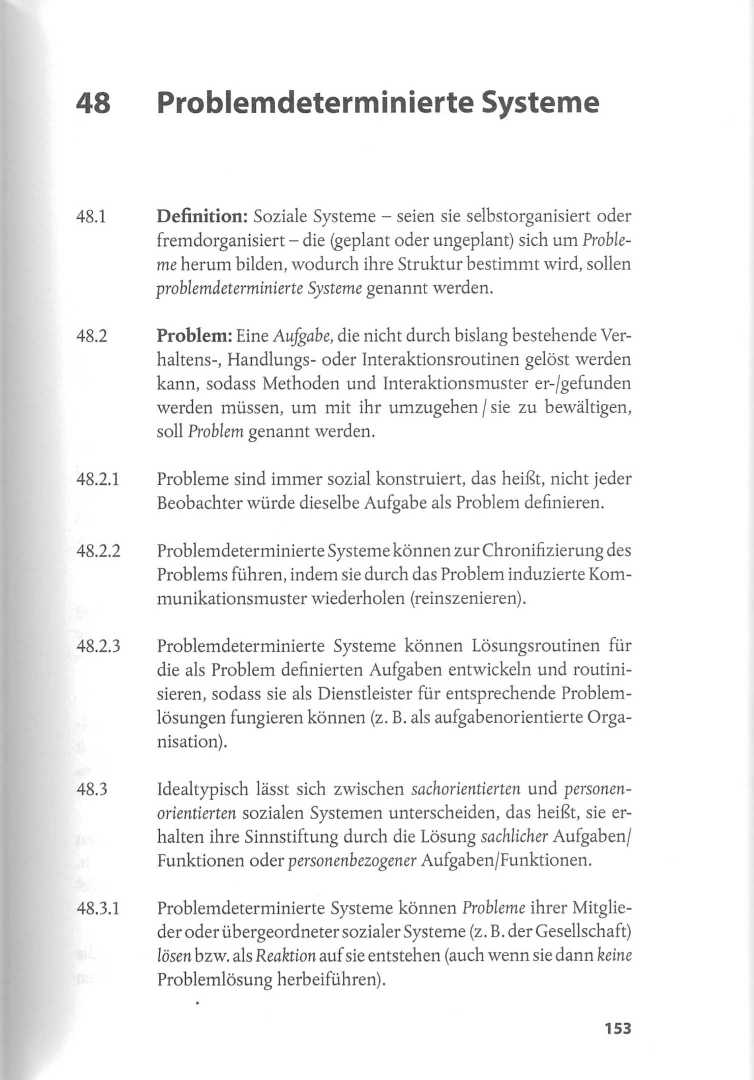48.1 **Definition:** Social systems – whether self-organized or externally organized – that form (planned or unplanned) around problems, which determine their Structure (Struktur), should be called problem-determined systems (*problemdeterminierte Systeme*).

Uploaded image
48.2 **Problem:** A Task [⇒ Task Location] that cannot be solved by existing routines of behavior, action or interaction, so that methods and patterns of Interaction have to be found to deal with it / master it, should be called a problem.
48.2.1 Problems are always socially constructed, i.e. not every Observer would define the same task as a problem.
48.2.2 Problem-determined systems can lead to the chronification of the problem by repeating (re-enacting) communication patterns induced by the problem.
48.2.3 Problem-determined systems can develop and routinize solution routines for the tasks defined as problems, so that they can function as service providers for corresponding problem solutions (e.g. as task-oriented organizations).
48.3 Ideally, a distinction can be made between fact-oriented and person-oriented social systems, i.e. they obtain their meaning through the solution of factual tasks/functions or person-related tasks/functions.
48.3.1 Problem-determined systems can solve problems of their members or higher-level social systems (e.g. society) or arise as a reaction to them (even if they do not bring about a solution to the problem).
48.3.2 Either the participants/members in a problem-defined system are brought together by the shared problem or a shared problem definition (= self-motivation), or they allow themselves to be recruited for participation (= external motivation) because they have a Goal that differs from the defined problem or the Task to be solved, which they can achieve through Participation.
~
SIMON, Fritz B., 2018. Formen: zur Kopplung von Organismus, Psyche und sozialen Systemen. Heidelberg: Carl-Auer-Systeme Verlag. Systemische Horizonte. ISBN 978-3-8497-0225-0302. p. 153.
r.Formen.Simon, 153